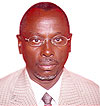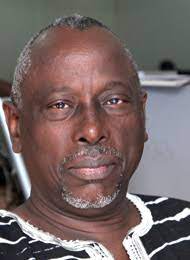Democratic governance has taken root in Rwanda, President Paul Kagame said in his State of the Nation Address on 7th February, 2011. He wasn’t boasting about some extra-ordinary achievement (although given the unique history of Rwanda, he had a right to do so).


Democratic governance has taken root in Rwanda, President Paul Kagame said in his State of the Nation Address on 7th February, 2011.
He wasn’t boasting about some extra-ordinary achievement (although given the unique history of Rwanda, he had a right to do so).
No, he did no such thing. He said it in a matter of fact way - like reporting a fact that is an ordinary occurrence.
That is the Rwandan way – modesty even when there are tremendous achievements to show off. Our way is: set goals; work to meet them; set new ones; attain them and move on to the next challenge.
That’s how progress is made and how it will be seen. Not by standing on rooftops, especially if you are thousands of miles away across a vast continent and an even bigger expanse of ocean, and shouting - see here, I am doing wonders. Not by making pleas to foreign leaders to approve your treasonable actions – unless, of course, you are drawing them into your scheme.
Where does President Kagame get the confidence to say with that sort of certitude that democracy has taken root in Rwanda? The evidence is before us. For the last several weeks elections for local government leaders have been taking place and will continue for a few more days – from the village to the district level.
They have become a regular occurrence. So regular and free, in fact, that they are part of normal life and no longer cause excitement. Elections have become so usual and boring that those who crave unusual excitement especially of the violent sort will be disappointed.
That’s perhaps why people like Theogene Rudasingwa in far away America do not notice them. I have a feeling, though, that he does but chooses, like a child, to cover his face in the naive belief that what he has wilfully blocked from his vision does not exist.
Yet for all that local government elections are keenly competitive – in a positive, mature way. Candidates must show that they have an edge over rivals. No insults, please; we are a civil people. And for the love of country, do not attach any label to us. We are Rwandan. No lies and empty promises either. We value performance and results, not the pronouncements of glib politicians. Only if you are hopelessly out of touch and enormously conceited like Rudasingwa and fellow gangsters can you fail to notice these simple truths about democratic competition in Rwanda.
And they are increasingly attracting people of a high calibre – morally and intellectually. Even the lowest (village) level leadership positions attract candidates who have university degrees, impressive CVs and hold executive jobs. Mark you there is no salary or other perks at this level.
And standards of conduct and personal integrity are very high, with the risk of being fired or jailed if you fall short of performance expectations. Yet many candidates still vie for them. Such candidates can only be driven by a spirit of service far greater than what the self-serving type can ever muster from their foreign bases.
The keen competition for local government positions is understandable as is government’s interest in them. Under decentralisation this is where the power is. It is also where the greatest service is provided to citizens.
Because of the proximity of authority to them, this is the level at which ordinary Rwandans exercise their democratic power – not only electing leaders, but also evaluating their performance and holding them to account.
All of which help to guarantee that the best and most competent people are elected to fill the positions and will retain them.
With this sort of democratic practice and guarantees that come with it, is it surprising that President Kagame’s first State of the Nation Address should be upbeat (for that it certainly was) if retrained (we leave chest-thumping to the gorillas and a few bad-mannered people)?
But Theogene Rudasingwa and the rest of the gang for whom he speaks ignore what Rwandans have achieved and go on to propose a return to the dark days of our history. He wants to pull Rwandans back into the abyss from which they came only sixteen years ago. Surely he must give us credit for a better memory.
Not content with deceiving his compatriots, Rudasingwa tries to draw foreigners into his web of deceit and back his group’s continuous attack on his homeland.
I think he overrates his powers of persuasion. These people have current and correct information about Rwanda and will not be taken in by the slick utterances of a traitor. He must surely have heard of this: Make a mistake about the statistics of the country and some of these people will not hesitate to disagree loudly and vigorously even in the middle of a presidential address.
When they listen to Rudasingwa’s ranting on governance, they must be asking: what’s this fellow talking about?
The reason they and Rwandans are incredulous is because of what is currently taking place in the country. Rwandans are busy making their democratic choices about their own governance. And not even Rudasingwa’s forked tongue can alter that fact.


